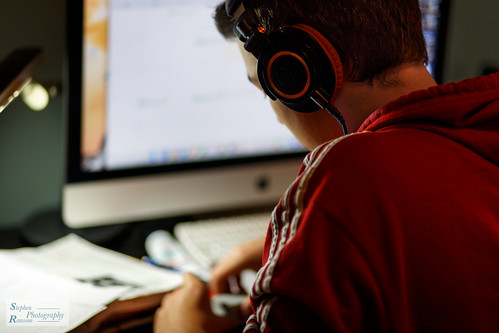 |
| Photo by Jordan McQueen on Unsplash |
Since the last post two significant events have happened to me - retirement and a heart operation. Both demand a period of transition to recover and adapt. I hadn't expected the two to coincide so closely so many of my retirement plans are on hold till I'm fit again but it is a time for reflection and deciding what things to continue and what to stop.
One hard decision was to wind up my Swedish news blog, Flexspan, and its weekly newsletter. This has operated in parallel with this blog but featured short news items about news, articles, research and events in educational technology both in Sweden and outside. I managed around four to five posts a week since 2009 and had a very central place in my life. Breaking up is always hard to do but I decided that I would adjust my interest and involvement in educational matters to a much lower level and create space for other interests. So I have now written my farewell post on that blog (if you can read Swedish see here) and have received lots of positive feedback from colleagues from all educational sectors. Blogging can be quite a solitary activity unless you're a major figure in your field and comments are uncommon so it's very pleasant when suddenly some nice comments come in. I will continue this blog for as long as it feels relevant. I realise that the less I read about education the less I will have to write about. Maybe I'll change the focus of the blog but at the moment it's hard to imagine a blog-free life.
Over these years I've learned an awful lot. Back at the end of the 00s, I was extremely optimistic about how digital technology was opening up education and all the exciting opportunities to change teaching and learning for the better. I took part in several projects on open educational resources, MOOCs and so on and there seemed to be a powerful movement in higher education towards open, accessible and inclusive education far beyond the confines of the physical campus. I thrived on the wonderful communities, collaboration and discussion and was inspired by so many innovative thinkers around the world. If only we could get the message across to the management and authorities! My posts from that era certainly convey that enthusiasm but the breakthrough never really happened. It took a pandemic to achieve that but even if everyone now has experience of online education the signs are that the instinct to go back to normal again are extremely strong. In some places online is seen as merely a pandemic stop-gap solution that worked quite well but can never replace the real thing. Read Martin Weller's recent posts on this theme: The fake online vs in-person culture war and Energy crisis and hybrid learning for some insights on this.
There is still plenty energy and innovation out there and many inspirational educators to follow. But technology has been swallowed up by big business and so much of educational technology seems focused on surveillance and control rather than freedom and innovation. I worry about the future and find it very hard to find any light ahead in a world that seems increasingly driven by greed and willful stupidity. I hope that education can find a way to develop digital learning spaces that don't track and sell user data to corporations or government but it's a big ask. I am also concerned that higher education is being marginalised in countries where research is increasingly dismissed, ignored and openly ridiculed by populist politicians and pundits. If so few decision makers take research seriously, especially when it tells them things they don't want to hear, then we have a very dangerous situation. No country is immune from this trend.
I will continue to post here on whatever grabs my attention in the world of education but otherwise I intend to do a lot of hiking, reading, music and other activities that give me energy. But first I need to get my health back on track.











